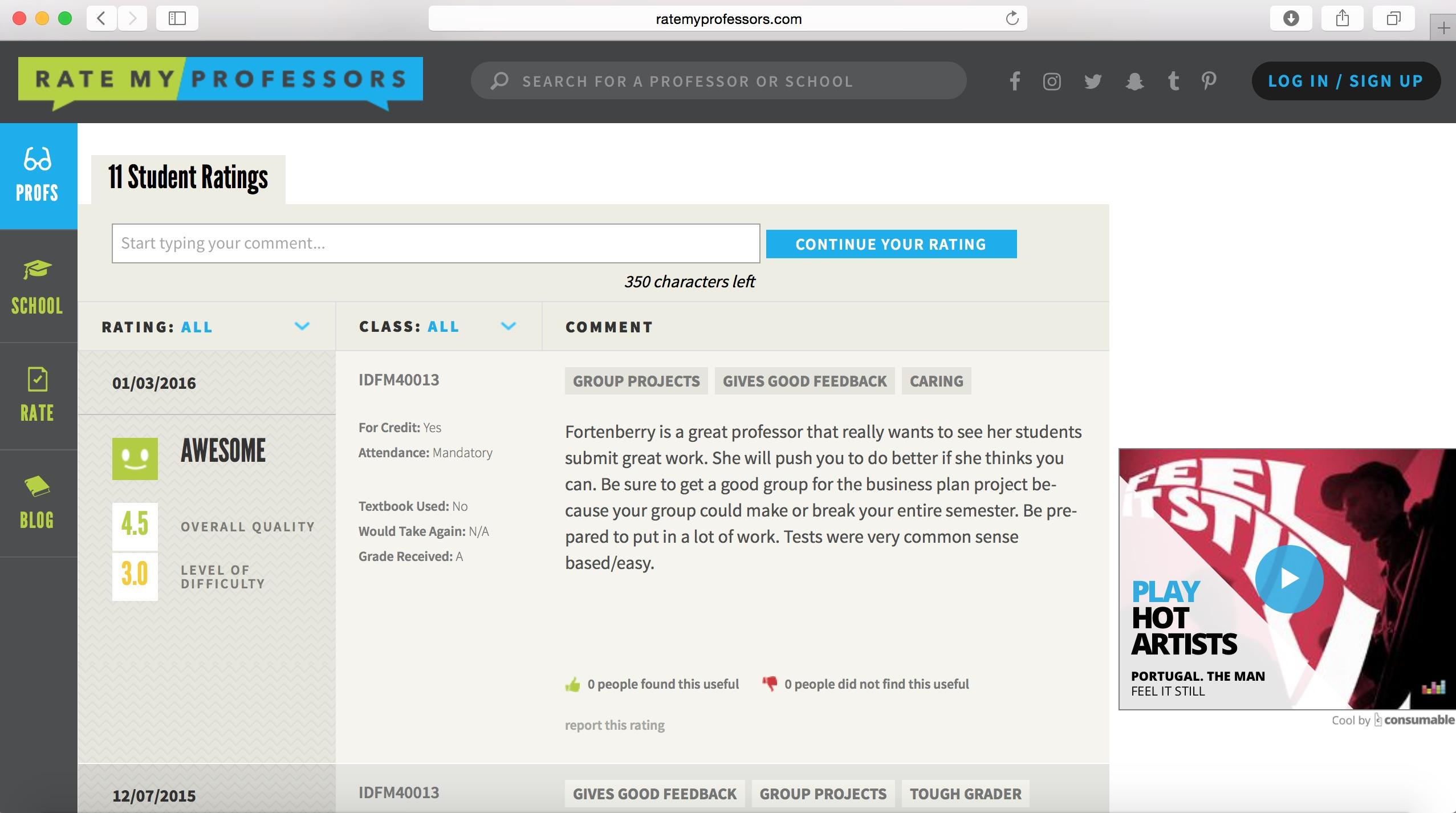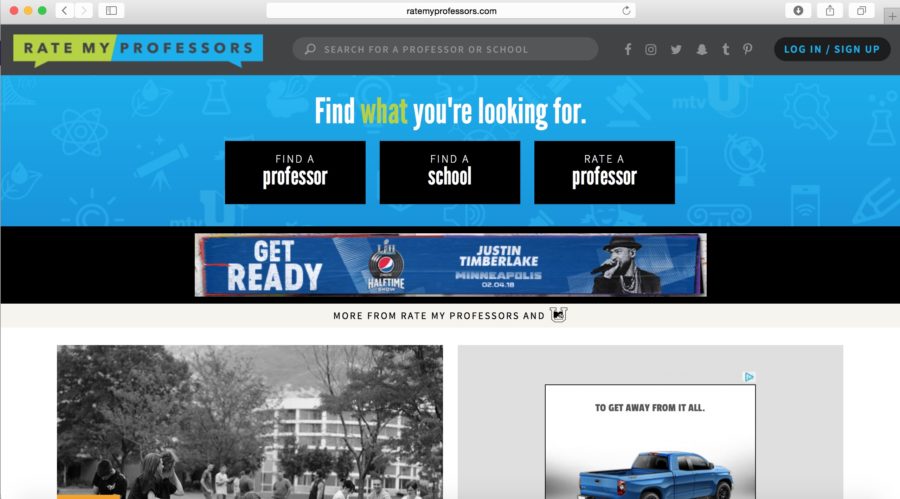Would take again. Level of difficulty. Hotness. These are all factors for the nationwide site: Rate My Professors. College students across the country read their fellow students reviews on the site during class registration time to get an idea of what professors are like and which ones to take – or not to take. For some students, the reviews may not carry much weight, but for others, it is a determining factor. “It greatly influences my decision to take a class or not,” student Peyton Purcell said. “I will not take a class with a teacher who has a poor rating or bad comments if I can avoid it.” But the reviews can tell people about more than just the professor. “I look into the way reviews are written about the class structure, grading scale and how much I will learn within the course,” Morris Herman, a business major, said. “Besides talking to my peers about their favorite teachers, it is my next source of finding out information regarding professors here at TCU.” Although it might be useful for students when it comes to enrolling in classes, for professors, it can affect them emotionally and impact the number of students who sign up to take their class. Most professors at TCU are aware of the website and its popularity among students; however, only a small number take the time to look at the posts, regarding themselves and their classes. Dr. Layne Craig, an English professor, said she has never gone on the website to read what students say about her class or her teaching style. She said it is tempting to look at what students are posting, but she chooses not to. Craig teaches two core English courses here at TCU. She said she believes her ratings on the website do affect her class sign-up in terms of numbers after she overheard students talking about it before registration was open once. In speaking to different professors on campus, many said ESPOT’s give them better, more useful feedback than Rate My Professors. ESPOT’s are professor and course-specific evaluations students are asked to complete at the end of each semester to measure what they liked and disliked about the course. “I find that looking at ESPOT’s gives a good sense of what students find specifically helpful or unhelpful which serves me better when I’m planning the next semester’s worth of classes,” Craig said. Dr. Sally Fortenberry, a fashion merchandise professor, said she finds ESPOT’s to be more useful than Rate My Professor too, although the response rates on ESPOT’s are not the highest.  Fortenberry said the website does not impact her class sign-ups because the students are required to take her classes in order to graduate. The website mostly affects class enrollment for professors who teach core classes rather than those who teach major or minor classes. Fortenberry said she has looked at the website to see what students have said about her and her class. She said she will try to find constructive and relevant comments she can use to make positive changes in her classes and her teaching style.
Fortenberry said the website does not impact her class sign-ups because the students are required to take her classes in order to graduate. The website mostly affects class enrollment for professors who teach core classes rather than those who teach major or minor classes. Fortenberry said she has looked at the website to see what students have said about her and her class. She said she will try to find constructive and relevant comments she can use to make positive changes in her classes and her teaching style.
Categories:
Rate My Professor site effects some students enrollment decisions
By Kristen Noto
Published Feb 7, 2018
More to Discover







